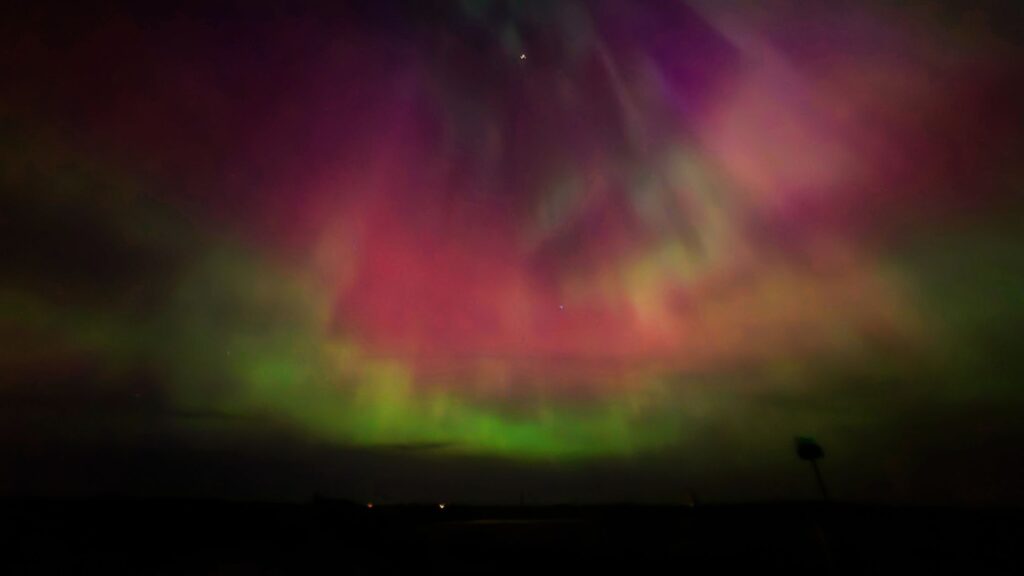Earth is full of wonders and amazing sights that add much content to people’s lives. One such phenomenon is the Northern Lights, the Aurora Borealis. The natural light display is one of the most spectacular observations for an individual.
The vibrant colours, visible in the night sky is a beautiful display of the universe speaking to itself about itself. And because of this, thousands of people spend their time and effort to witness the stunning show of nature.

Northern Lights A.K.A Aurora Borealis
Aurora Borealis is visible in the northern hemisphere, whereas Aurora Australis is visible in the southern hemisphere. Both result from the Sun’s solar activity, which sends plasma explosions and magnetic fields towards the Earth.

Upon reaching or interacting with the Earth’s magnetic field, this coronal mass ejection sends sparks or currents towards the planet’s poles. These currents and sparks result in the formation of both lights visible near the poles.
Places To See Northern Lights Around The Globe
There are not many places where you can see the northern lights—they are visible only to those living near the poles. However, people living at latitudes between 60 and 70 can easily see the light with their naked eyes.

For the rest of the people who want to see the phenomenon—they need to travel to the following nations or regions. Also, one should be familiar with and updated on the timings of the Aurora Borealis.
- Canada
- Alaska
- Norway
- Sweden
- Iceland
Photography Tips For Capturing The Northern Lights
The Northern Lights have been a fascinating sight for photographers who are looking to capture natural beauty. Using premium instruments will undoubtedly result in some of the finest photographs, but most people can also compose good-quality photos using their smartphones.

Below are composition tips for photographing the aurora borealis.
- Invest in a tripod.
- Prefer manual options.
- Use a wide-angle lens.
- Set the camera angle properly.
- Keep a high ISO.
- The aperture should be prominent.
- Be patient for quality results.
Conserving Aurora Borealis For Future
Even though Aurora Borealis is a natural phenomenon that happens occasionally, it’s important to note that climate impacts these lights. First and foremost, the lights are affected by light pollution, so it’s crucial not to reside in remote places.

Climate change also affects the planet’s magnetosphere, indirectly affecting the northern lights. The increase in pollutants is also alarming for the environment and natural beauty.
Lastly, it’s important to raise awareness about the Aurora Borealis so that more people prefer sustainable tourism.
Final Thoughts On Northern Lights
The Northern Lights, also known as the Aurora Borealis, are a spectacular natural phenomenon visible in both the northern and southern hemispheres. They are formed by the Sun’s solar activity, resulting in explosions of plasma and magnetic fields. The lights are visible to those living near the poles and can be seen in Canada, Alaska, Norway, Sweden, and Iceland. Conservation efforts include reducing light pollution and promoting sustainable tourism.
Frequently Ask Questions (FAQs)
Can northern lights be seen in India?
Yes, the northern lights can technically be seen in Ladakh, India. However, to capture the natural phenomenon, one needs high-end equipment.
Where are the northern lights found?
Northern lights lie beneath the auroral oval area—latitude 60-70.
Where is the best place to see the Aurora lights?
The best places/countries to watch the Aurora Borealis are given below:
- Sweden
- Finland
- Russia
- Canada
- Alaska
What causes the Aurora lights?
Exponential solar activity releases magnetic matter, which interacts with the Earth’s magnetic field, resulting in the Aurora Borealis.


Pingback: The Truth About Fascinating Celestial Events In June 2024
oh waaoooo